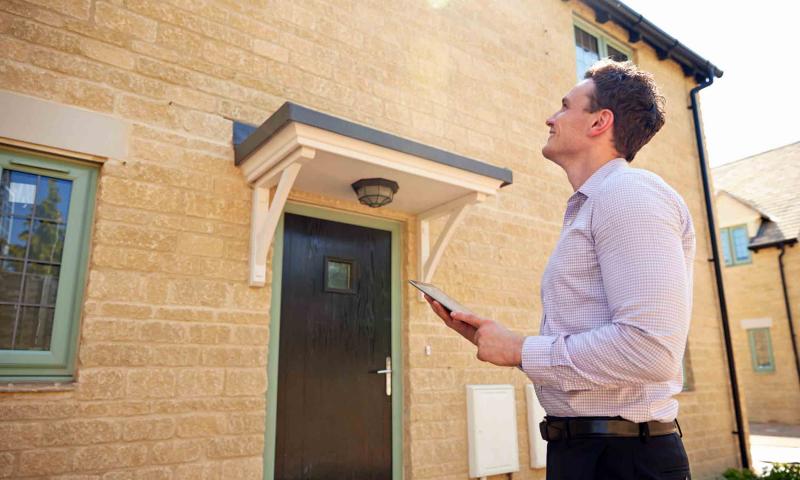Table of Contents
Introduction
Purchasing property through a business entity is a growing trend among UK entrepreneurs and company directors. Whether for investment, operational use, or strategic asset management, using a business to acquire real estate can offer tax efficiency and long-term financial advantages. However, it also comes with unique legal, financial, and compliance obligations.
This guide will walk you through how to buy a house through your business UK, including the key legal structures, tax implications, mortgage requirements, and step-by-step process, enabling you to make an informed and strategic decision.
Why Consider Buying a House Through Your Business?
Many business owners consider buying residential or commercial property through their business for several reasons:
- Tax efficiency: Potential deductions on mortgage interest, maintenance, and capital allowances.
- Asset diversification: Real estate can strengthen the business’s balance sheet.
- Rental income: Property can be leased out to generate revenue.
- Strategic flexibility: Useful for directors’ accommodation (with limitations) or future pension planning.
While attractive, this approach must be carefully evaluated for suitability, especially regarding tax and regulatory compliance.
Legal Structures for Property Purchase
When exploring how to buy a house through your business UK, choosing the right business structure is vital. The main legal entities used are:
Limited Company (Ltd)
Most common structure for property investment. Offers limited liability and potential tax advantages, especially when profits are retained and reinvested.
Key Points:
- Profits taxed at Corporation Tax rates (currently 25% for most businesses).
- Directors can extract profits via dividends, salary, or pension contributions.
- Suitable for buy-to-let and commercial property investments.
Limited Liability Partnership (LLP)
Used occasionally by professionals or joint ventures. Offers flexible profit-sharing and personal tax treatment for partners.
Key Points:
- Partners are taxed individually on their share of profits.
- Less common for property holding compared to Ltd companies.
- Offers operational flexibility in multi-party arrangements.
Other Structures
- Sole traders generally cannot buy property through their business as it’s not a separate legal entity.
- Trusts or pension schemes (SIPP/SSAS) may also be used for specific long-term planning needs but involve stricter rules.
Tax Implications and Benefits
Buying property through a business can present tax advantages—but also some drawbacks.
Benefits
- Mortgage interest relief: Fully deductible for companies (unlike private landlords post-Section 24 changes).
- Corporation tax rates are generally lower than personal income tax.
- Capital allowances: Can be claimed on commercial properties.
- Inheritance tax planning: Shares in property companies may be easier to structure for succession.
Challenges
- Stamp Duty Land Tax (SDLT): 3% surcharge applies to company purchases of residential property.
- Annual Tax on Enveloped Dwellings (ATED): Applicable if your company owns residential property valued over £500,000 and not let or used for business purposes.
- Dividend taxation: Profits extracted as dividends may be subject to additional personal taxes.
- No Capital Gains Tax allowance: Companies do not benefit from the personal CGT allowance.
Tip: Always seek advice from a qualified tax advisor before purchasing property through a company to assess net tax benefits.
Mortgage and Financing Considerations
Obtaining a mortgage through a business differs from personal lending:
Eligibility
- Most lenders require the business to be an SPV (Special Purpose Vehicle) Ltd company registered with Companies House.
- Directors may need to provide personal guarantees.
- Lenders assess the company’s income, assets, and business plan.
Terms
- Interest rates on commercial or buy-to-let mortgages for companies are often higher than residential mortgages.
- LTV (Loan-to-Value) ratios may be more conservative—typically up to 75%.
- Fees and arrangement costs can be higher.
Note: Mortgage availability is more robust for buy-to-let or commercial use than for private residential use by directors.
Step-by-Step Process
Here’s how to buy a house through your business UK in a structured, compliant way:
1. Set Up the Appropriate Entity
- Register a limited company or LLP with Companies House.
- Use an SPV structure with a suitable SIC code (e.g., 68209 for property letting).
2. Develop a Business Plan
- Include financial projections, intended use of the property, and long-term investment goals.
- This is essential for mortgage applications and future tax planning.
3. Secure Financing
- Compare lenders offering commercial or limited company buy-to-let mortgages.
- Provide business accounts, director ID, and personal guarantees as required.
4. Engage Legal and Financial Advisors
- Appoint a solicitor with experience in corporate property purchases.
- Consult a tax advisor to optimize your structure and avoid compliance pitfalls.
5. Conduct Due Diligence and Complete the Purchase
- Property surveys, valuation, and legal checks should be completed.
- Pay SDLT and register the property with the Land Registry under the company’s name.
6. Comply With Ongoing Obligations
- Submit annual company accounts and property income to HMRC.
- File ATED returns if applicable.
- Maintain records of income, expenses, and capital improvements for future tax calculations.
Potential Risks and Mitigation Strategies
Buying through your business offers rewards but also carries risks:
| Risk | Mitigation Strategy |
| Higher interest rates | Shop around for SPV-specific lenders |
| ATED charges | Let out property or ensure exemption applies |
| Loss of personal CGT allowance | Factor into investment decision and exit plan |
| Dividend taxation | Consider pension contributions or salary structures |
| Limited mortgage availability | Work with specialist mortgage brokers |
Reminder: Always consult professionals before proceeding to ensure compliance and financial efficiency.
Conclusion
Understanding how to buy a house through your business UK involves a blend of legal planning, tax strategy, and financial insight. With the right structure—typically a limited company—and a well-crafted investment plan, entrepreneurs can unlock valuable benefits like tax relief, asset diversification, and long-term wealth building.
However, it is crucial to weigh the risks, consider ongoing compliance requirements, and seek professional legal and tax advice tailored to your specific business and financial goals.
By approaching this strategy with due diligence and expert support, UK business owners can make property a powerful asset within their enterprise portfolio.






